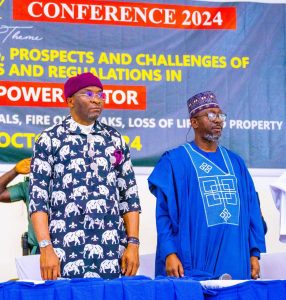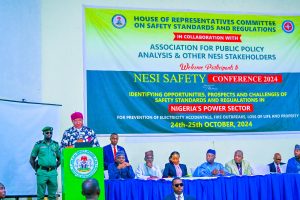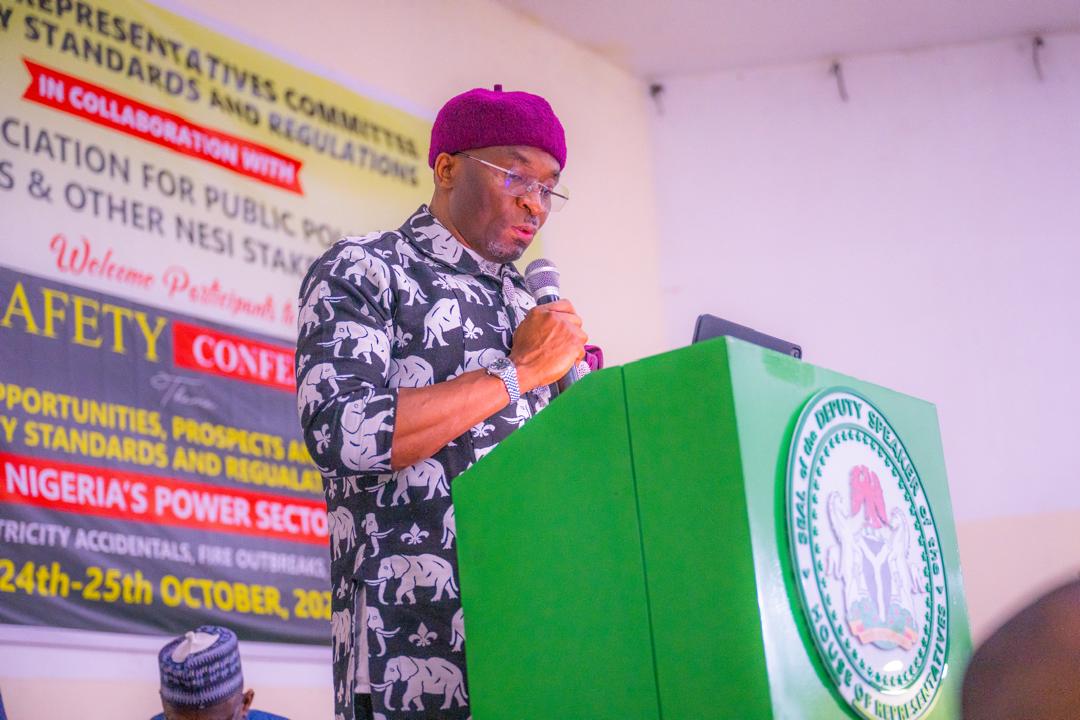Speaker of the House of Representatives, Rt. Hon. Tajudeen Abbas, PhD has called for collaborative efforts amongst the stakeholders in the electricity sector to effectively tackle incidences of fire, electricity network failures, infrastructural decline, theft and vandalization of public assets.
He also said that robust safety frameworks must be established and policies formulated to prioritize human life while ensuring the reliability of our electricity supply.
Speaker Abbas made the call while delivering his remarks at the beginning of a two-day conference on “Nigeria Electricity Supply Industry Safety” organized by the House of Representatives Committee on Safety Standards and Regulations for Public Policy Analysis in Abuja on Thursday.
Represented by the Deputy Speaker, Rt. Hon. Benjamin Okezie Kalu, Speaker Abbas said at the heart of the discussions is a singular focus on protecting human life.


He said: “Every worker who enters a power plant or climbs a utility pole deserves to return home safely at the end of their shift. Likewise, every citizen who interacts with electrical infrastructure should do so without fear for their safety. Our duty as leaders is not merely regulatory compliance; it is about fostering an environment where safety becomes ingrained in our culture.
“Occurrences such as electrocution, fire incidents, electricity networks failures, infrastructural decline, theft and vandalization are known to be persistent in Nigeria. These avertable shortfalls have been linked to security negligence around electricity critical infrastructure, poor fire facilities, installation of sub-standard materials and by non-licensed operators and low maintenance culture.

“This conference serves as a call to action for all stakeholders involved—government agencies, private sector players, regulatory bodies, and civil society organizations—to collaborate effectively in establishing robust safety frameworks. We must leverage collective expertise to formulate policies that prioritize human life while ensuring the reliability of our electricity supply.
“To achieve these goals, collaboration among stakeholders is essential. This includes government agencies, private sector players, labor unions, and civil society organizations. Together, we can develop comprehensive strategies that not only meet but exceed existing safety standards. We must invest in training programmes that equip workers with the knowledge and skills necessary to navigate potential hazards effectively”.
Speaker Abbas also reiterated the commitment of the parliament towards enacting laws that will not only promote safety and encourage technological advancement but also ensure they are
comprehensive enough to cover existing practices while being flexible enough to accommodate emerging technologies.
“On our part as legislators, our foremost duty is to enact laws that not only prioritize safety but also encourage technological advancement. The electricity supply sector is undergoing rapid transformation driven by innovations such as smart grids, renewable energy sources, and advanced metering infrastructure. It is imperative that our regulatory framework evolves in tandem with these advancements. We must ensure that our legislation is comprehensive enough to cover existing practices while being flexible enough to accommodate emerging technologies.
“Our commitment to enhancing safety standards is exemplified by this conference itself. The collaboration between the House Committee on Safety Standards and Regulations and the Association for Public Policy signifies our dedication to creating a platform where ideas can be exchanged freely. It is through such partnerships that we can develop actionable strategies aimed at improving safety protocols while simultaneously promoting innovative practices within the industry.
“As we delve into discussions over these two days, let us remember that safety should never be an afterthought but rather a foundational principle guiding every aspect of our electricity supply industry. It is imperative that we adopt a proactive approach to safety—one that anticipates potential hazards rather than merely reacting to them after they occur”, Speaker Abbas said.









Leave a Reply